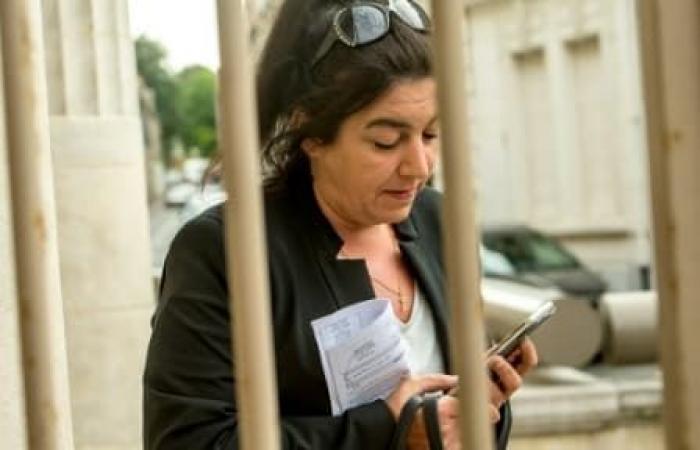
Mokhtar M. managed to reach England in 2016, with the help of Béatrice Huret, his future wife. Back in France a few years later, and despite his marriage, the courts refused to issue him a residence permit.
Administrative justice confirmed, this Thursday, December 26, the obligation for a 43-year-old Iranian, a former migrant from Calais, to leave French territory, despite his love affair with a French woman, which was recounted in a book and inspired a film.
In 2016, Mokhtar M. managed to reach England aboard a boat purchased with the help of Béatrice Huret, a volunteer from the Calais “Jungle” who hosted him and with whom he had established a romantic relationship . Ms. Huret was found guilty of helping him, but was exempted from sentence.
Béatrice Huret told her story in the book “Calais mon amour”, written with Catherine Siguret, which then inspired the film “They are alive” by Jérémie Elkaïm, released in 2022.
Refusal of a residence permit
After several years spent in England and a long-distance relationship, Mokhtar M. returned to France in March 2022, where he applied for a residence permit and married Béatrice Huret.
But on March 19, 2024, the Pas-de-Calais prefecture refused to issue him a residence permit and took out an obligation against him to leave French territory (OQTF), accompanied by a ban on returning to France for a period of time. year.
Mokhtar M. challenged this prefectural decree on December 11 before the Lille administrative court, citing his marital situation in France and the risks to which a return to Iran would expose him, according to him, due to his conversion to Christianity.
The public rapporteur recommended the cancellation of the OQTF and the issuance of a residence permit.
Recent marriage, no social or professional integration
The court, however, considered, this Thursday, December 26, that his marriage was still “recent” and noted that Mokhtar M. did not justify “any social or professional integration on French territory”. Furthermore, he did not demonstrate that he would put his life in danger if he returned to Iran, according to the judges. Accordingly, the court upheld the OQTF.
However, the judges overturned the ban on returning to France, particularly in view of his family ties and the lack of threat he represents to public order. Mokhtar M. is therefore ordered to leave French territory but may consider a subsequent legal return.
Questioned by AFP, his lawyer Me Marie-Hélène Calonne described this decision as “disappointing” and announced her intention to appeal. The execution of the OQTF should not take place before the examination of such an appeal.





